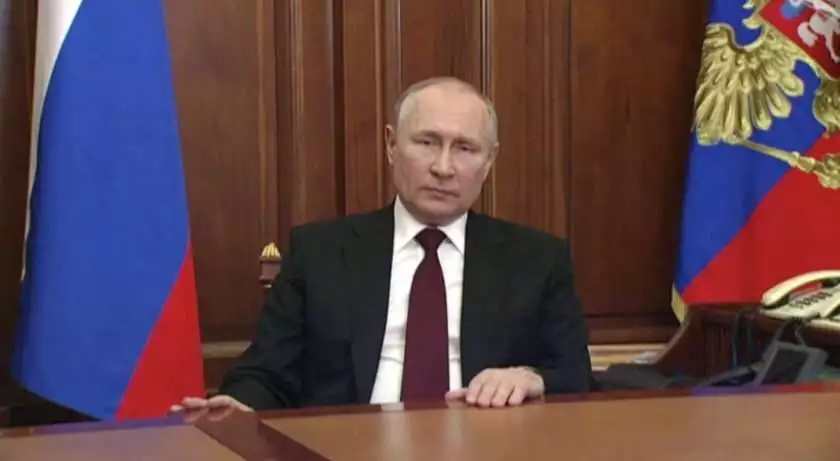European Union leaders have been considering what some are calling the “nuclear option” of removing Russia from SWIFT, a high security network that connect thousands of financial institutions around the world, following the invasion of Ukraine.
US President Joe Biden said Thursday that removing Russia from SWIFT is not the direction the rest of Europe wants to go in at this moment, but noted that taking the nation out of the network is “always an option.”
“The sanctions that we’ve proposed on all their banks are of equal consequence, maybe more consequence than SWIFT,” Biden said, referring to the latest round of sanctions he announced today.
The Foreign Minister of Ukraine Dmytro Kuleba on Thursday urged the West to ban Russia from SWIFT in a tweet. Earlier on Thursday, CNN reported that the EU was undecided as to whether to cut Russia off from SWIFT and that EU nations were split over the decision.
But what is SWIFT, and what could it mean for Russia? The Society for Worldwide Interbank Financial Telecommunication was founded in 1973 to replace the telex and is now used by over 11,000 financial institutions to send secure messages and payment orders. With no globally accepted alternative, it is essential plumbing for global finance.
Removing Russia from SWIFT would make it nearly impossible for financial institutions to send money in or out of the country, delivering a sudden shock to Russian companies and their foreign customers — especially buyers of oil and gas exports denominated in US dollars.
“The cutoff would terminate all international transactions, trigger currency volatility, and cause massive capital outflows,” Maria Shagina, a visiting fellow at the Finnish Institute of International Affairs, wrote in a paper last year for Carnegie Moscow Center. Excluding Russia from SWIFT would cause its economy to shrink by 5%, former finance minister Alexei Kudrin estimated in 2014.
SWIFT is based in Belgium and governed by a board consisting of 25 people, including Eddie Astanin, chairman of the management board at Russia’s Central Counterparty Clearing Centre. SWIFT, which describes itself as a “neutral utility,” is incorporated under Belgian law and must comply with EU regulations.
What happens if Russia is removed? There is precedent for removing a country from SWIFT.
SWIFT unplugged Iranian banks in 2012 after they were sanctioned by the European Union over the country’s nuclear program. Iran lost almost half of its oil export revenue and 30% of foreign trade following the disconnection, according to Shagina.
“SWIFT is a neutral global cooperative set up and operated for the collective benefit of its community,” the organization said in a statement in January. “Any decision to impose sanctions on countries or individual entities rests solely with the competent government bodies and applicable legislators,” it added.
It’s not clear how much support there is among US allies for taking similar action against Russia. The United States and Germany have the most to lose if Russia is disconnected, because their banks are the most frequent SWIFT users to communicate with Russian banks, according to Shagina.
The European Central Bank has warned lenders with significant exposure to Russia to prepare for sanctions against Moscow, according to the Financial Times. ECB officials have also asked banks how they would respond to scenarios including a move to prevent Russian banks accessing SWIFT.
CNN
Discover more from The Source
Subscribe to get the latest posts sent to your email.








